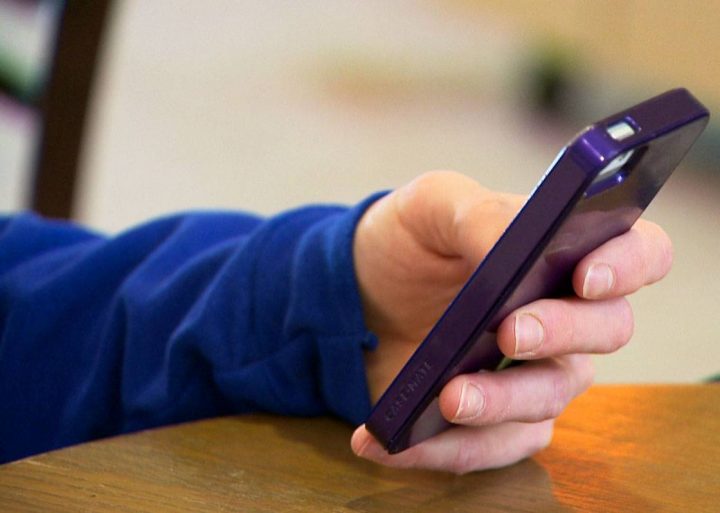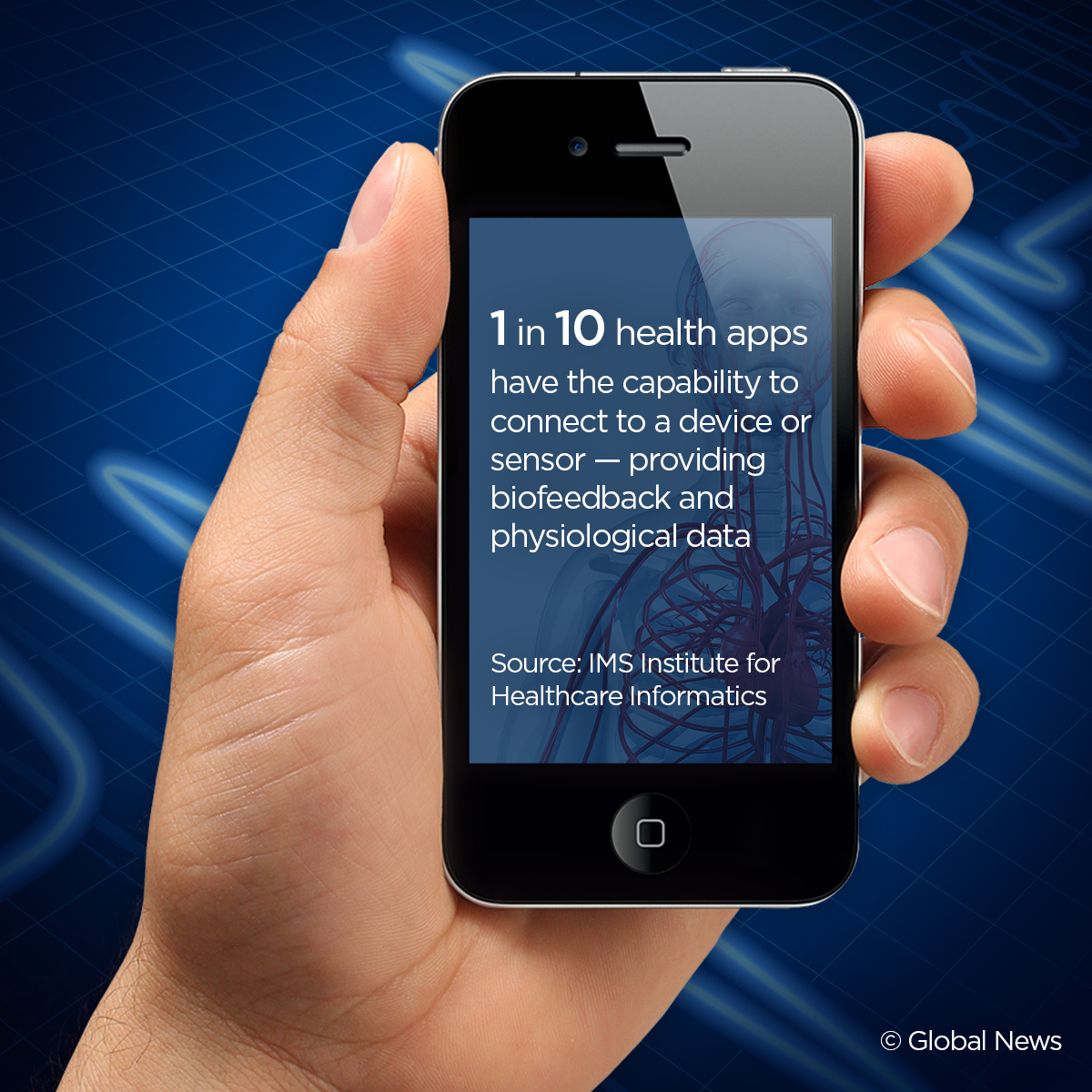A power nap, canine wellness and nutrition tips – all apps available under the banner of health and wellness.

With more than 165,000 smartphone health apps available the choice seem endless but for the Heart and Stroke Foundation’s Director of Digital Health, Ahmad Zbib there are some important differences.
“Apps are a dime a dozen and anyone can develop an app and nobody is really vetting the health content, so it’s really important that you are getting it from a credible source,” Zbib told Global News.
READ MORE: Health and wellness apps available top 165,000: report
In the arena of mHealth or mobile health, apps are becoming more sophisticated, the IMS Institute for Healthcare Informatics found that one in ten apps now have the ability to connect to a device or sensor, providing biofeedback and physiological data.
While two-thirds of apps focus on general wellness, there are now close to one-quarter of apps that are designed to help patients with chronic disease management.
Infographic by Janet Cordahi
The Heart and Stroke Foundation’s 30 Days Challenge app launched in 2012 and quickly became the top health app in Canada. Zbib told Global News the app is being updated and the changes will be launched in October.
“We’re tapping into the phone’s capability to track steps and we are relaying that back to the user, so if they have chosen to be more physically active”, said Zbib, “the app would be able to capture that.”
What to look for in a health and wellness app?
Advice from the Heart and Stroke Foundation’s Director of Digital Health, Ahmad Zbib:
1. Affiliation
Who is the publisher/developer? Is the source credible and reliable? Look for a hospital, university or a known organization. Do you want the source to be Canadian?
2. Theory
Is there credible scientific or biomedical theory behind the app? If there is, it is more likely to work. Also, is the app appropriate for the stage you are at? Does it give you the support you need?
3. Ease of use
If it’s clunky and tough to use – you will not use it. We live busy lives, apps needs to be simple but effective, the more complicated the more likely you will stop using it.
4. Connectivity
Does it integrate with your other apps? If one app is capturing the steps you are taking, can it share the information with your other apps? This way you won’t be entering data twice.
5. Ask a friend and try it and move on
There are lots of choices. Talk to a friend, if they have used an app for over a month that is a good sign. If you don’t like the app, move on there are lots of other choices.






Comments